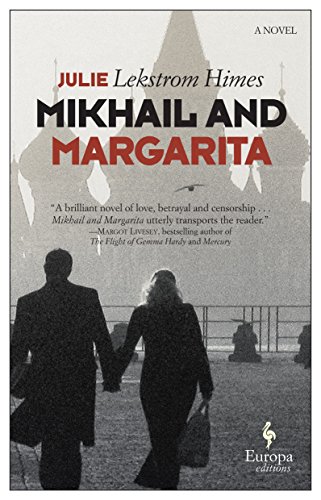Mikhail and Margarita
When Margarita steps from the pages of Bulgakov’s satirical masterpiece and into the author’s life, the result is pure cold war noir, reminiscent of Donnersmarck’s The Lives of Others, whose anti-hero becomes obsessed with the artist couple he is meant to observe. In Hines’ novel, a similar story is told from the perspective of Bulgakov and his mistress, as their love dies a thousand deaths when Stalin’s secret police turns its attention on the writer. To Bulgakov’s chagrin—or relief, it is not clear—the spy charged with his surveillance falls in love with Margarita and determines to save her life when she is arrested and deported. But Bulgakov, too, loves Margarita and pursues her to Siberia, from where an escape seems nigh impossible.
Part paean to Bulgakov’s genius, part essay on the issue of censorship, Mikhail and Margarita is strongest when it examines classical fiction’s central themes, deception and betrayal. The real Bulgakov was clear about his belief that evil exists in the world, and he borrowed from the Faust legend in order to tell the story of Marguerite’s fall from grace. Hines’ objectives and characters are more conflicted, but the torments inflicted upon Margarita by the men she loves—writers and spies—appear timeless. Does Margarita’s suffering elevate her above those who sacrifice her on the altars of their twin ambition, art and politics? Human duplicity is another theme in the novel, and the reason why this question is left hanging. A great read, although the decision to pair the real Bulgakov with a product of the author’s imagination might confuse some more persnickety readers.










